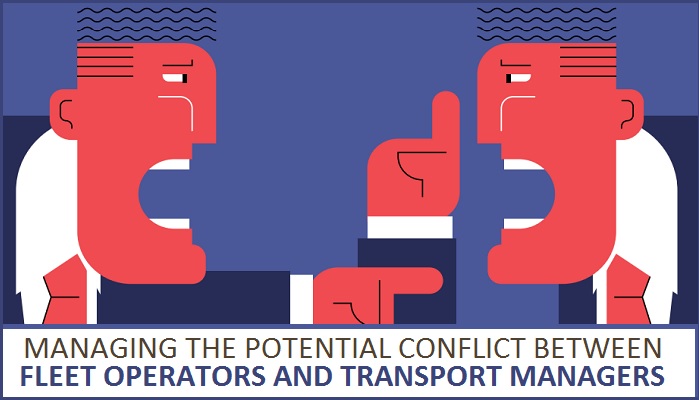During the year 2017-18, 105 transport managers in the UK were disqualified. This was an increase of 36 on the previous 12 months. Here, Paul Dyde, an independent compliance auditor, looks at the reasons and what can be done to reduce the risks.

Many will say, the increase in Transport Manager (TM) disqualifications is purely their own fault, because of a lack of experience, lack of knowledge, or not keeping an eye on what is happening. However, some operators find it hard to share everything with their TM, forgetting the TM must have effective control to ensure compliance. If something goes wrong, as far as the OTC (Office of the Traffic Commissioner) and the DVSA (Driver and Vehicle Standards Agency) are concerned, the TM must have failed and therefore should have resigned.
Let us ask the question: who is truly or morally at fault here, the operator/owner or the TM? The owner/operator is in business to make money; the TM is employed to have effective and continuous control of the road transport activities and the road transport undertakings. In essence, they see things from different perspectives.
 If a TM’s instructions are overturned by an owner, the TM should write to the operator immediately stating that the decision should not have been countermanded, explaining the danger of a PG9 (Roadworthiness prohibition) and that, should his decisions be overridden again, the TM will have no choice but to resign. Simply ‘having a chat’ with the owner will not be an adequate defence in the event, for example, of a fatal accident. A transport manager is employed because they are professional and have a strong working knowledge of the rules and regulations and fully understand the undertakings of operating vehicles, ensuring public safety.
If a TM’s instructions are overturned by an owner, the TM should write to the operator immediately stating that the decision should not have been countermanded, explaining the danger of a PG9 (Roadworthiness prohibition) and that, should his decisions be overridden again, the TM will have no choice but to resign. Simply ‘having a chat’ with the owner will not be an adequate defence in the event, for example, of a fatal accident. A transport manager is employed because they are professional and have a strong working knowledge of the rules and regulations and fully understand the undertakings of operating vehicles, ensuring public safety.
Why have transport manager disqualifications increased but those of operators remained the same?
This is simple: the operator will say that the TM is employed as a professional to take seriously the responsibility and the challenges of the job. It would be difficult to prove the operator was equally at fault for non-compliance. There is another possible reason for the increase. Because of the recession, transport managers have been reluctant to resign in fear of struggling to find other work.
Here lies the conundrum! Do you stay with the employer who overrides every decision by doing your best, just waiting and worrying if you will end up in a Public Inquiry? Or do you resign and face unemployment? Is the reward worth the risk of potentially being disqualified, or worse imprisoned? Is it worth the stress, anxiety and constant battles with the operator who is concentrating on profit and reducing costs because of squeezed margins rather than ‘best practice’? Could people become less willing to take on these roles? Could the current shortage of drivers be extended to TMs as well?
The solution
This is where independent annual audits can help as a way of supporting and guiding both the TM and the operator. The report will show if they are achieving the minimum standards required, what they are doing well and areas where action is required to improve, working towards ‘best practice’.
The audit report is also a tool to give both the operator and TM unbiased ‘middle ground’ to communicate clearly with each other and a common goal to work towards. Relationships between an operator and the TM often start with good intentions but end up poles apart because of the fragmented perspectives between what is desired and what is required.
For more information contact Paul Dyde on pd@pauldyde.co.uk.
Photo: Paul Dyde